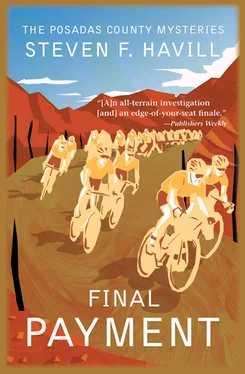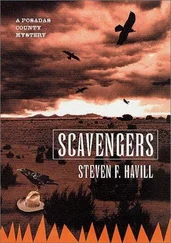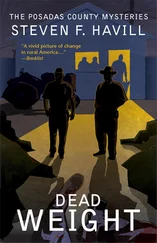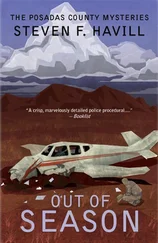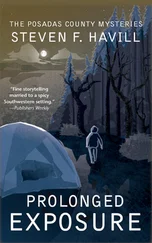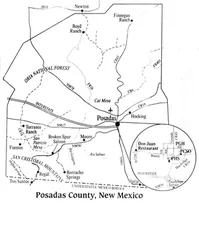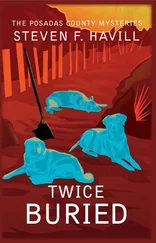Steven Havill - Final Payment
Здесь есть возможность читать онлайн «Steven Havill - Final Payment» весь текст электронной книги совершенно бесплатно (целиком полную версию без сокращений). В некоторых случаях можно слушать аудио, скачать через торрент в формате fb2 и присутствует краткое содержание. Год выпуска: 2011, Издательство: Poisoned Pen Press, Жанр: Полицейский детектив, на английском языке. Описание произведения, (предисловие) а так же отзывы посетителей доступны на портале библиотеки ЛибКат.
- Название:Final Payment
- Автор:
- Издательство:Poisoned Pen Press
- Жанр:
- Год:2011
- ISBN:нет данных
- Рейтинг книги:3 / 5. Голосов: 1
-
Избранное:Добавить в избранное
- Отзывы:
-
Ваша оценка:
- 60
- 1
- 2
- 3
- 4
- 5
Final Payment: краткое содержание, описание и аннотация
Предлагаем к чтению аннотацию, описание, краткое содержание или предисловие (зависит от того, что написал сам автор книги «Final Payment»). Если вы не нашли необходимую информацию о книге — напишите в комментариях, мы постараемся отыскать её.
Final Payment — читать онлайн бесплатно полную книгу (весь текст) целиком
Ниже представлен текст книги, разбитый по страницам. Система сохранения места последней прочитанной страницы, позволяет с удобством читать онлайн бесплатно книгу «Final Payment», без необходимости каждый раз заново искать на чём Вы остановились. Поставьте закладку, и сможете в любой момент перейти на страницу, на которой закончили чтение.
Интервал:
Закладка:
“Apparently so.”
If she had a problem deciding how to introduce Francisco, Mrs. Gracie had solved it neatly. Mike Parsons, the band director, stepped onstage. Applause greeted him and he nodded curtly, all business.
“Do you like what you’re hearing?” he asked, his foghorn voice reaching effortlessly to the farthest corners of the theater. The audience applauded politely. “So who’s next?” Glancing at the program as if he might have forgotten, he continued, “Francisco Guzman is seven years old, and is already one of Mrs. Gracie’s stars…as well as being a veteran page turner.” He frowned with mock severity at Francisco, who was already half standing. “Please welcome a remarkable talent playing a composition by another rare one…Mozart’s Sonata in F.”
“Relax, querida ,” her husband whispered. “My hand’s about to fall off.”
Estelle flexed her fingers, realizing that she’d been crushing every hand she could reach into a clammy ball. She tousled Carlos’ silky black hair, and he leaned back against his father, perfectly confident and at ease, ready to listen to the stories his older brother was about to tell.
Now all by himself on the stage, Francisco was diminutive against the black expanse of the piano. He slipped onto the bench and regarded the keyboard as if someone had switched the blacks and whites while his back was turned. With his left hand, he reached out as far as he could, spanning the bass keys. He straightened, then did the same, reaching to his right. Estelle could see that in a year or two, her son might be able to reach the pedals without straining and pointing his toes. The little boy looked out at the audience and grinned impishly.
He had not carried any music onstage, and the piano’s black music rack was empty. His left hand curled under his chin in a gesture that Estelle recognized as the little boy’s way of holding on to some inner, personal delight. Finally, both hands drifted down to the keyboard, and the first chord, a full, rich F, burst forth. He held it longer than he ever had in practice, longer than the composer indicated it should be, but it was Francisco’s story now, not Mozart’s.
The piece that reminded Estelle of squirrels arguing over nuts continued without hesitation until the presto movement, the opening measures of which had always reduced the little boy to hopeless giggles. Carlos emitted a tiny squeak and instantly clapped a hand over his mouth, but this time his older brother was undeterred. He pushed the piece faster and faster, then let it gradually relax, as if the squirrels, now sated with acorns, were too fat to move. The story ended with the same F chord that started it, played so softly that the sound disappeared in the big room before Francisco removed his hands from the keys. Only when he turned a bashful smile toward them did the modest audience erupt in applause.
Bill Gastner leaned forward, reached across Francis and Carlos, and patted the back of Estelle’s hand. “You can relax now,” he whispered. “The kid did good.”
After a brief stop for a chat with Melody Mears, Mike Parsons lumbered back onstage as the applause continued.
“Well,” Parsons said, pausing as Francisco took his seat. “Remember you heard it here first.” He beamed at the audience and rubbed his hands. “Melody, are you ready?” The girl nodded, and Parsons silently clapped his hands once. “I call Melody Mears ‘Miss Sunshine,’ because she lights up every room she enters. And so does her music. She’s been playing piano for six years, and the piece she’s going to play for you tonight is one of the all-time classical hits.” He beckoned toward Melody, who bounced out of her seat.
“Pachelbel’s Canon in D,” Parsons announced, and left the stage. He met Melody on the stairs, and she reached out a hand and whispered something to him.
“Sure,” he said to the girl, then turned to the audience. “Can we have our talented page turner back for an encore?”
Estelle watched with amusement as Francisco shot out of his seat and practically skipped to the stage. The Canon was another multipage opus, and Melody’s copy was tattered from handling. She smoothed it carefully on the rack, taking her time. Francisco squirmed on the bench beside her, then took a deep breath as his partner prepared to play.
The piece struck Estelle as repetitious but elegant, a haunting tune that once poured into the ears was hard to erase. Even though it was entirely possible that he had never seen the music before this moment, Francisco did a flawless job turning the battered pages.
Finally, as the applause swelled, Francis leaned close. “Company,” he said. A hand on her shoulder startled Estelle at the same time that she heard the unmistakable clank of hardware and creak of leather. She turned to look up into the face of Deputy Tom Pasquale, who then knelt in the aisle beside her.
“We’re going to need you,” the deputy whispered as quietly as he could, and pointed discreetly toward the rear door.
Francis laughed ruefully. “Too good to last,” he said. “I’ll make sure the kid makes it home through the crush of his adoring fans.”
“Ay,” Estelle sighed. Her eyes searched Pasquale’s face. “This can’t wait?” she asked, knowing the question was a waste of time. Her pager and phone were turned off, and instructions had been left with the dispatcher-and she had felt no quake of the world ending.
“No, ma’am. It sure can’t.” Pasquale straightened up, and she slipped out of her seat with an apologetic smile at her husband and padrino . Gastner, retired after twenty years with the Sheriff’s Department and knowing the drill, shrugged philosophically. Two rows ahead of them, Sergeant Tom Mears turned and looked at her, and Pasquale crooked his finger at him as well.
“A minute,” Estelle said, and she crossed quickly to the front row, kneeling by her son. Francisco hugged her fiercely, and she wasn’t sure if the heart she could feel banging away was her own, or her son’s.
Onstage, Mrs. Gracie waited politely.
“I’m proud of you, mi corazón, ” Estelle whispered in her son’s ear. She gave him another hug and then rose. As the door closed behind them, Estelle could hear the elderly woman’s voice introducing Jaycee Sandoval, the final star of the show. The undersheriff wondered if Jaycee would need help turning pages, too.
Chapter Eight
“One of ours?” Estelle asked incredulously, and Pasquale nodded.
“The sheriff thinks so.”
The evening away from work hadn’t lasted long. Both she and Sergeant Mears had driven with their families to the recital, leaving patrol vehicles at home. For the altogether too fast ride back to her house, Estelle’s mind churned. She had a dozen questions, but they all could wait. Pasquale dropped her at the curb, and she raced into the house, changed clothes, and was heading toward the front door when her mother hobbled out of her bedroom.
“And so?” Teresa Reyes said.
Estelle hugged the tiny, birdlike frame gently. “I have to go, Mamá. ”
“Always, you have to go. Am I going to hear how the concert went?”
“Beautifully, Mamá. I wish you could have gone.”
“There will be others,” the old woman said. She had never offered an explanation why she had not wanted to attend the concert, although the hard metal chairs in a cool gymnasium would be torture enough. “You be careful.”
“Everyone will be home in a few minutes,” Estelle said.
“Then maybe I’ll stay up.” She reached up with parchment fingers and touched Estelle’s cheek. “You be careful,” she said again.
A few minutes later, as Estelle neared the airport gate, she saw Bob Torrez’s county Expedition parked in front of the last hangar in the row of five buildings, nosed in with an older model BMW sedan and airport manager Jim Bergin’s Dodge pickup. Pasquale evidently hadn’t returned to the airport.
Читать дальшеИнтервал:
Закладка:
Похожие книги на «Final Payment»
Представляем Вашему вниманию похожие книги на «Final Payment» списком для выбора. Мы отобрали схожую по названию и смыслу литературу в надежде предоставить читателям больше вариантов отыскать новые, интересные, ещё непрочитанные произведения.
Обсуждение, отзывы о книге «Final Payment» и просто собственные мнения читателей. Оставьте ваши комментарии, напишите, что Вы думаете о произведении, его смысле или главных героях. Укажите что конкретно понравилось, а что нет, и почему Вы так считаете.
